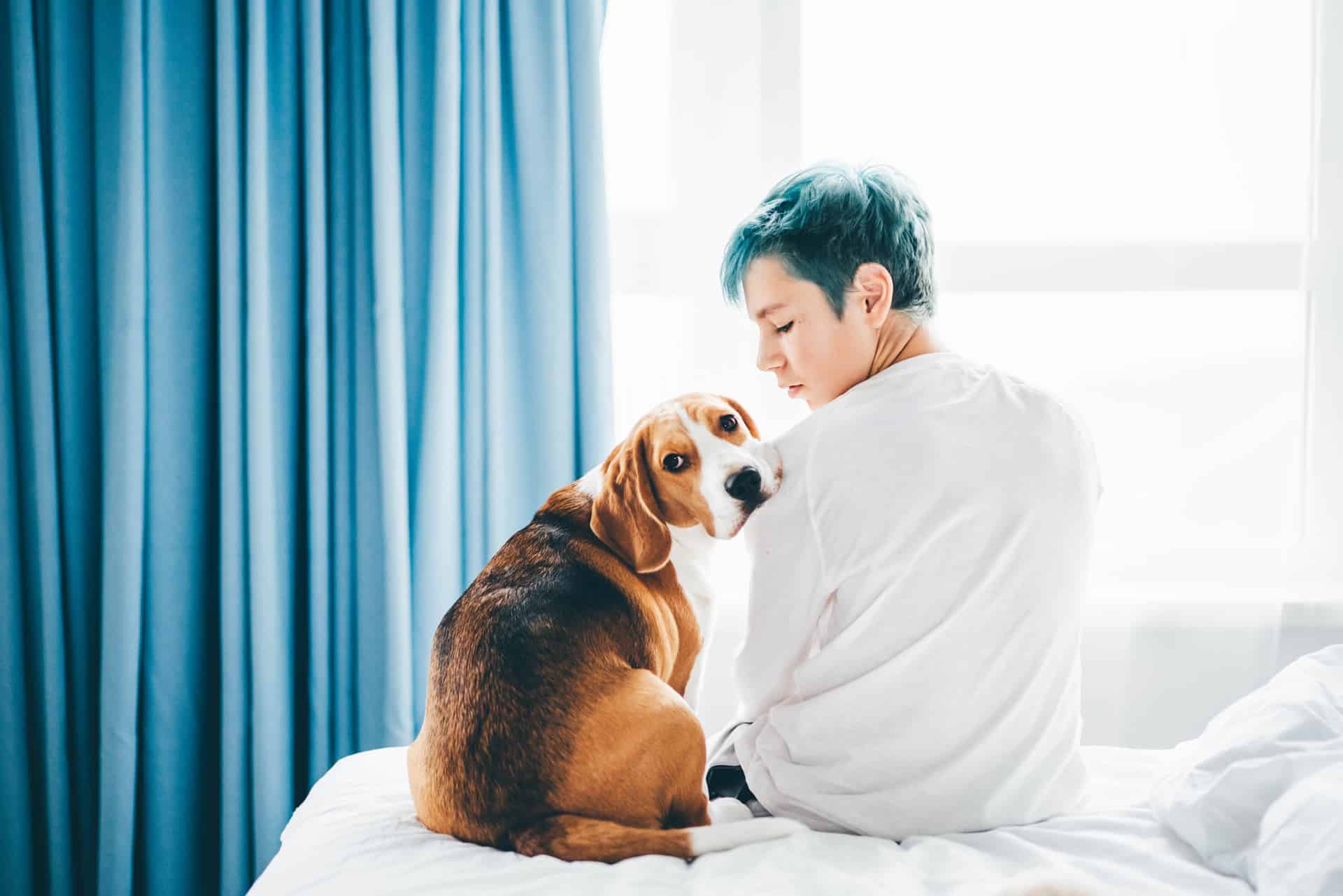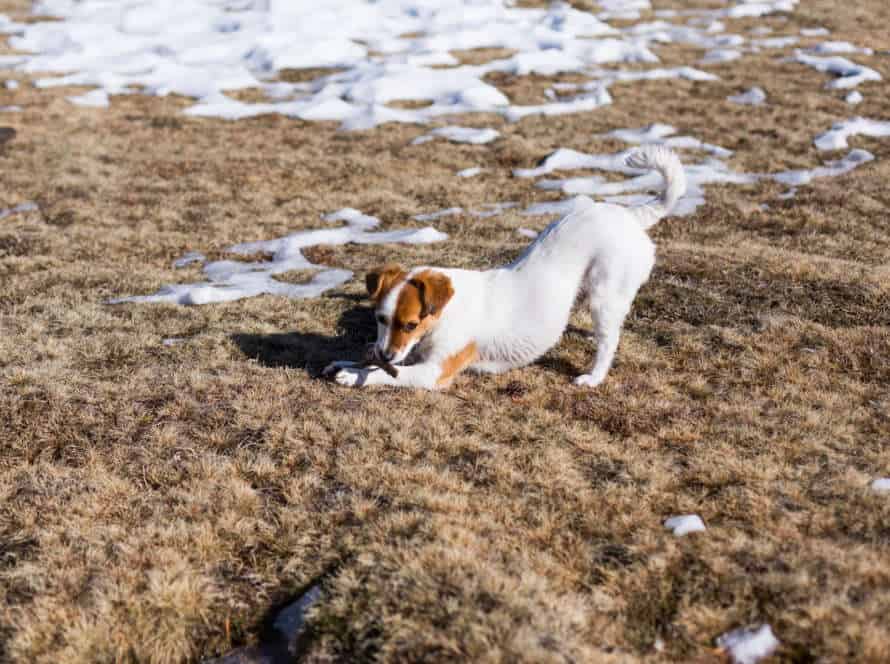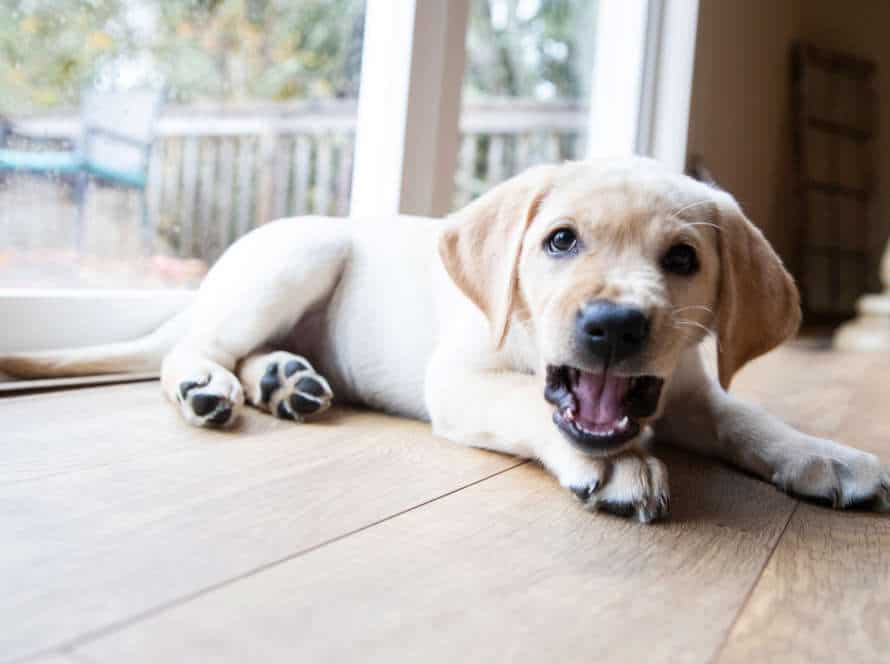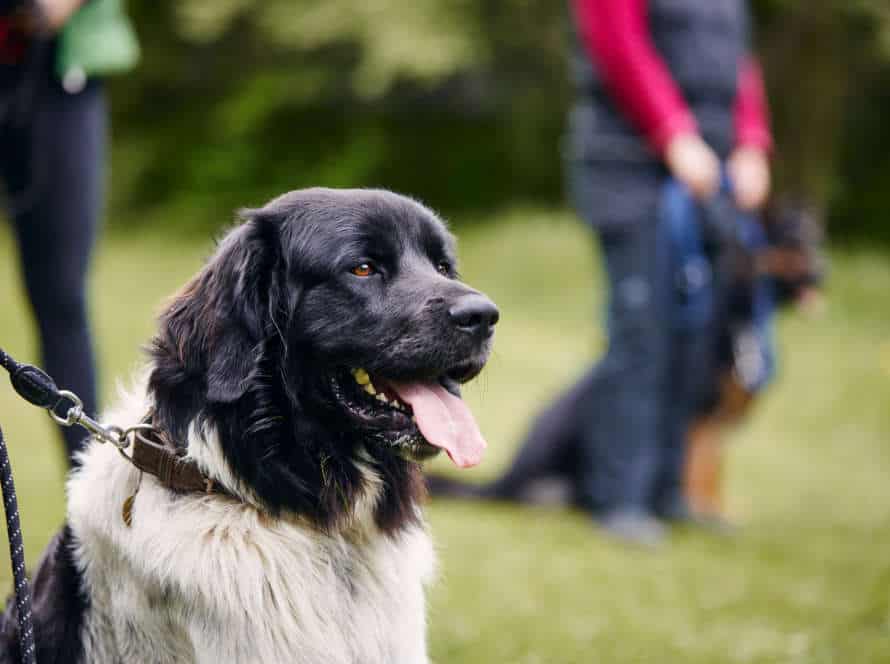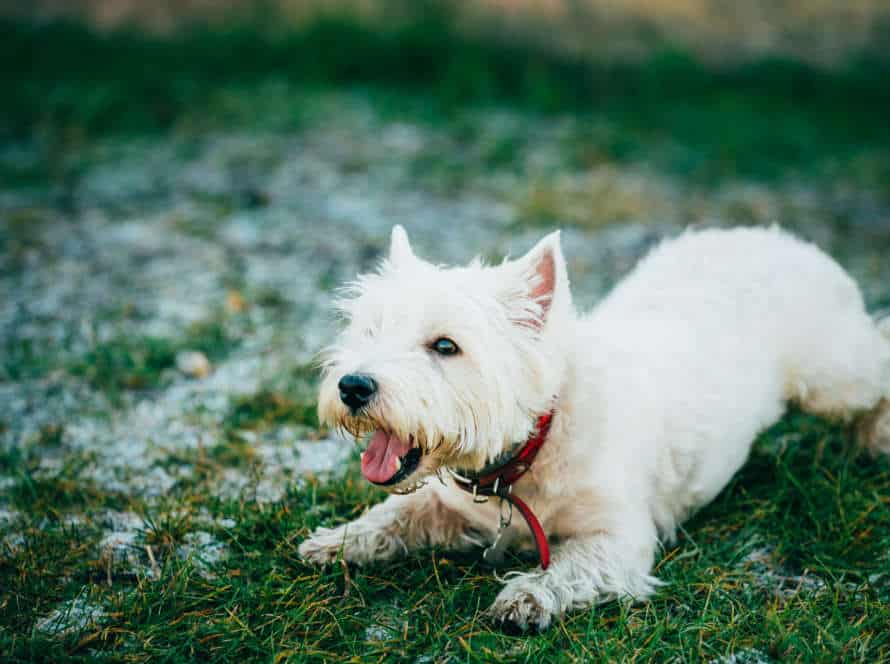The Connection Between Noise Phobias and Separation Anxiety
Dogs with noise phobias are prone to separation anxiety. When a loud noise like thunder or fireworks is heard, the dog may feel scared or panicked. This can be traumatic without the reassurance of their owner.
This can form a vicious cycle. Heightened fear and anxiety during noise events can cause more separation anxiety.
Owners should take steps to soothe their dogs. Providing a safe space, a beloved toy, or music can help reduce the emotional trauma and lessen the chances of developing separation anxiety.
Understanding Noise Phobia in Dogs
It’s known dogs can be scared of loud noises. But, what many don’t know is this fear might indicate something serious – separation anxiety. Noise phobia can be linked to separation anxiety in dogs. This happens when dogs are left alone. Let’s look into how noise phobias and separation anxiety can be related in dogs and how they can be handled.
Identifying noise phobias in dogs
Noise phobia in dogs is common. It’s an excessive fear and anxiety response to sounds like thunder, fireworks, gunshots and appliances. It usually links with separation anxiety. Here are signs:
- panting/shaking
- hiding/clinginess
- barking/howling/whining
- destructive behaviour
- loss of appetite
If you suspect noise phobia, seek help from a professional. Tip: Early exposure to various sounds can help prevent it. E.g. Puppy socialization classes and vacuum cleaners/doorbells.
Causes of noise phobia in dogs
Noise phobia is a common condition among dogs. Anxiety or fear triggered by loud and unfamiliar sounds characterizes it. The causes of noise phobia vary. Usually, they relate to traumatic experiences and genetics. Additionally, there’s a connection between noise phobias and separation anxiety.
Traumatic experiences, especially those related to loud and sudden noises like fireworks or thunder, could cause dogs to develop noise phobias. Genetics also contribute to susceptibility to noise phobias. Certain breeds are predisposed to anxiety and phobias more than others.
In some cases, noise phobia is linked to separation anxiety. This is when the dog becomes anxious when left alone. Destructive chewing and barking are some behaviors that result from this. The loud and sudden noises may trigger anxiety since the dog associates them with being left alone.
Having an understanding of the causes of noise phobia is essential for developing effective treatment plans. These plans can improve the quality of life for affected dogs.
Effects of noise phobia on dogs
Noise phobia is a common behavioral issue in dogs, having various effects on their well-being, including increasing separation anxiety.
When heard, loud and sudden noises like fireworks, thunderstorms, or construction can cause dogs with noise phobias to shake, pant, drool, be destructive, or even run away.
Left untreated, it can affect a dog’s quality of life, making them more anxious and fearful. It can also disrupt their routines and daily activities.
There’s a link between noise phobia and separation anxiety. Dogs with noise phobias can develop separation anxiety due to stress at being left alone during loud noises.
To help, provide a safe and quiet place for them to retreat, distract them with toys or treats, and consider professional help. Early intervention and positive reinforcement training can help too!
Understanding Separation Anxiety in Dogs
Dogs with Separation Anxiety show signs such as destruction or excessive barking when left alone. It is also linked to noise fears, as dogs with separation anxiety are often spooked by loud noises like fireworks or thunder. Let’s look deeper and learn how to help a pooch with this issue.
Identifying separation anxiety in dogs
Separation anxiety is a common issue for many dog owners. To understand it, it’s important to identify symptoms. These may include:
- Excessive barking or howling when left alone.
- Destructive behaviour, such as chewing or digging.
- Agitation or pacing around the house.
- Drooling or panting excessively.
- Refusing to eat or drink when separated from the owner.
- Noise phobias – dogs may become anxious when they hear loud or sudden noises.
It’s essential to seek professional help to properly diagnose and treat separation anxiety in dogs. This can prevent distress for both the dog and owner.
Causes of separation anxiety in dogs
Separation anxiety is a frequent issue among dogs. It’s when they get anxious and scared when their owner leaves. Causes of this are:
- Lack of training to stay alone for long periods.
- Being too attached to the owner, or past neglect, abuse, or changes in living situation.
- Health issues such as cognitive dysfunction, vision problems, or hearing loss.
- History of being abandoned or rehomed.
Noise phobias are also linked to separation anxiety. Loud noises like fireworks or thunderstorms can make dogs terrified. When this happens while their owner is away, the fear gets tied to them leaving. This leads to separation anxiety.
It’s important to help dogs with this condition. Seek professional help like behavior modification therapy and medication. This will help the pet feel better and have a better quality of life.
Effects of separation anxiety on dogs
Separation anxiety may strongly impact a pup’s mental health. It can cause destructive behavior, loud barking, and aggression. Additionally, it has a relationship with noise phobias, which can be triggered when dogs are solo.
To help your furry friend cope, try these things:
- Desensitize them to being alone.
- Give them stimulating games and puzzles.
- Reach out to a professional.
Remember – separation anxiety is treatable. With time and effort, you can help your pup manage their anxiety and live a joyful life.
Relationship between Noise Phobia and Separation Anxiety
Noise phobia and separation anxiety are major causes of distress and worry in dogs. Noise phobia is an extreme fear or terror of loud noises. Separation anxiety is a strong panic disorder linked to being left alone. Although they are different issues, they can occur at the same time and be related.
In this article we look at the link between noise phobias and separation anxiety.
Potential link between noise phobia and separation anxiety
Dogs with separation anxiety may suffer from noise phobia too. It is thought there may be a link between these conditions.
Separation anxiety is when a dog is scared and stressed when alone. Noise phobia is an extreme fear of certain sounds, for example, thunder or fireworks.
We need to find out more about the connection between these two conditions. It is possible that dogs could develop noise phobia because of stress when alone. Or dogs with noise phobia may have difficulty being alone, because they link it with the scary noises.
If your dog has either one of these conditions, it is important to speak to a vet or animal behaviorist. They will create a plan that is tailored to meet your dog’s needs.
One way of treating both separation anxiety and noise phobia is desensitization training. This involves exposing your dog to the triggers in a safe and positive way, little by little.
How noise phobia may trigger separation anxiety
Dogs with noise phobia may be more likely to get separation anxiety, due to the stress and fear brought on by loud noises. Noise phobia is a condition which causes dogs intense fear or anxiety in response to certain sounds, like thunder, fireworks or traffic. When triggered, dogs may shake, pant, drool or try to escape.
With repeated exposure to loud and sudden noises, the dog’s anxiety can become more widespread, making them fear or feel anxious in other situations, like when left alone.
If signs of noise phobia or separation anxiety are seen in your dog, it’s important to get advice from your vet or a certified dog behaviorist. This may include medication, behavior modification or both.
Pro tip: Create a safe and calm space in your home for your dog to go to when they are anxious or overwhelmed. This can help to give them a sense of security and reduce their anxiety.
How separation anxiety may trigger noise phobia
Pets that suffer from separation anxiety? They could be prone to noise phobia too! Separation anxiety is common in dogs. They exhibit behaviors like destructive chewing and excessive barking when away from owners. This can make them more sensitive to noises and develop noise phobia.
Pets with noise phobia show signs of panic or distress during loud noises. Thunderstorms or fireworks, for example. This is because they perceive loud noises as a threat, which triggers their fight or flight response.
Pet owners can help their furry friends. Desensitize them to loud noises gradually. Play soothing music or provide a safe refuge during loud noises for relief. Seeking help from a vet or a professional dog trainer may also be beneficial. Pro tip: Be patient and consistent. Significant improvements may take time to achieve.
Managing Separation Anxiety and Noise Phobias in Dogs
Separation anxiety and noise phobias are common issues in dogs. They can be stressful for both the pet and its owner.
Let’s look at the signs and symptoms. Then, let’s see how they are related. Lastly, let’s explore what we can do to help our four-legged friends.
Behavioral interventions for managing separation anxiety and noise phobias
Behavioral interventions are a great way to help manage separation anxiety and noise phobias in dogs.
These conditions often go hand in hand. Separation anxiety can cause dogs to be distressed when left alone. Noise phobias can cause fear and anxiety with loud sounds.
So, here are some behavioral interventions to assist:
- Gradual desensitization: Introduce the trigger in a slow, controlled manner to reduce fear over time.
- Counter conditioning: Connect the trigger with positive experiences, like treats or toys. This helps associate these situations with positive emotions.
- Medication: Severe cases may require medication. Talk to your vet for guidance.
By using these interventions, pet owners can help their dogs feel more comfortable in previously stressful situations.
Medications for managing separation anxiety and noise phobias
Separation anxiety and noise phobias are common issues in dogs. Medications can help manage these conditions. Clomipramine, Alprazolam, and Fluoxetine are some of the most effective medications.
- Clomipramine is an antidepressant that works by increasing serotonin in the brain, reducing anxiety.
- Alprazolam is known as Xanax and is a benzodiazepine that helps with anxiety.
- Fluoxetine increases serotonin in the brain to treat anxiety-related issues.
It is important to talk to your vet before using any medication. Side effects can occur and not all medications work for every dog. A combination of medication, behavior modification, and positive reinforcement can be an effective way to manage separation anxiety and noise phobias.
Other approaches for managing separation anxiety and noise phobias in dogs
Separation anxiety & noise phobias in dogs can be related. Here’s some tips to help manage these issues:
- Desensitization. Expose your pup to scary sounds or being alone, slowly and safely.
- Counterconditioning. Link anxiety-causing stuff with something pleasant, like toys or treats.
- Medication. In some cases, your vet may prescribe meds to help.
- Professional training. Find a trainer or behaviorist to create a special plan for your dog.
Remember: Every pup is different. It might take time & patience to find the right mix of strategies for managing anxiety.
Frequently Asked Questions
1. What is a noise phobia?
A noise phobia is an extreme fear or anxiety response triggered by certain sounds or noises, such as fireworks, thunder, or loud music.
2. What is separation anxiety?
Separation anxiety is a condition where a person or animal experiences extreme anxiety or panic when they are separated from their owner or caregiver.
3. Is there a connection between noise phobias and separation anxiety?
Yes, there is a connection between noise phobias and separation anxiety in pets. If a pet has a noise phobia, the panic and anxiety it experiences during episodes can cause it to develop separation anxiety.
4. How can I tell if my pet has separation anxiety?
A pet with separation anxiety may become anxious, destructive, or vocal when left alone. It may also follow the owner or caregiver from room to room and become overly excited when the owner returns.
5. Can noise phobias and separation anxiety be treated?
Yes, there are treatments available for noise phobias and separation anxiety. Behavioral modification techniques, such as desensitization and counterconditioning, can help pets overcome their fears and anxieties.
6. Should I seek professional help if my pet has noise phobias or separation anxiety?
Yes, if you suspect that your pet has a noise phobia or separation anxiety, it’s important to seek professional help from a qualified veterinarian or animal behaviorist. They can diagnose the problem and recommend the best treatment options for your pet.

